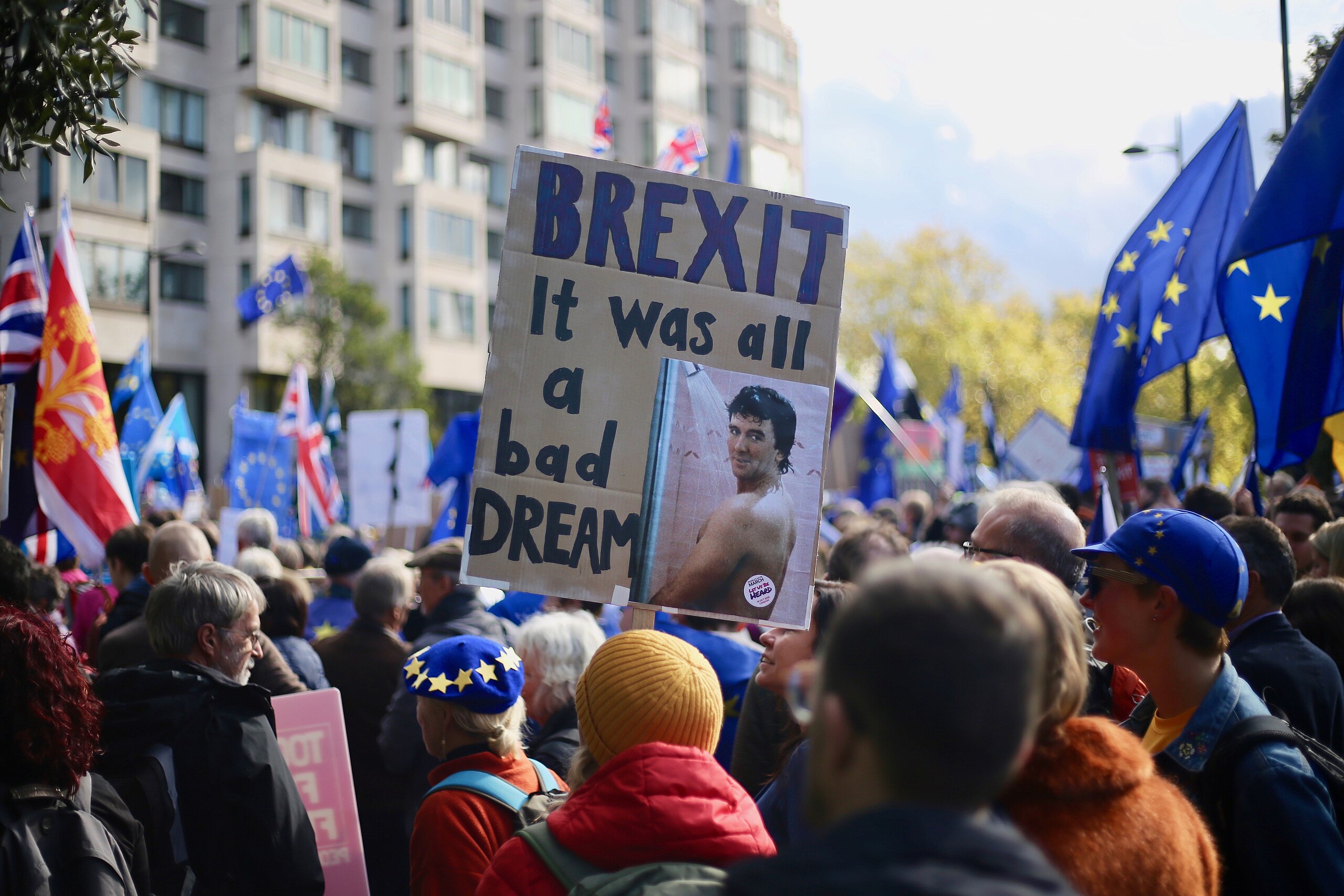Labour and the Conservatives are strangely quiet about Brexit as the country heads into an election
It’s been almost eight years since the 2016 EU referendum. But for many young Brits, it’s still an unresolved issue.
Cecilia Jastrzembska, president of the Young European Movement, is one person trying to change this.
“We managed to get national coverage,” she says, describing her organisation’s recent campaign pushing for the UK to rejoin the EU-backed student exchange programme, Erasmus+.
“We worked with the British Council,” she explains, “who then made some recommendations to the European Commission, and then they, quite to our surprise, actually kind of accepted them. That was very exciting. We launched a petition that got 40,000 signatures.”
Soon after, the EU proposed a youth mobility scheme with the UK. This would allow UK and EU citizens under 30 to live and work in either area without visas.
After all of this, however, the UK’s two main political parties gave the same response: “They flatly shut it down,” says Jastrzembska with frustration.

A new generation of voters have come of age in the UK since 2016, having grown up in a period of British politics dominated by Brexit. The Conservatives won the 2019 general election with the slogan “Get Brexit Done” emblazoned across everything from posters to tractors.
However, in 2024 with a new election campaign underway, the B-word is barely uttered – at least not by the major political parties. A consequence of this muffled silence is that voters are unsure how their future government may handle UK-EU relations.
If current polling trends continue, the Labour Party will win power. But their rejection of the youth mobility scheme, and their lack of engagement on the topic of Brexit more generally, makes it hard to predict how they would approach
it in government.
“It’s unsurprising to be honest,” Jastrzembska concedes. “No party in its right mind is going to put that [closer UK alignment to the EU] in its manifesto, right? No. Because obviously then the whole election would be fought on that, and it would cause so much disunity and division.”
Jonty Bloom, a journalist who has reported extensively on Europe, explains it another way: “Brexit is very boring to most of the voters who are fed up with hearing about it. They want to move on and another civil war over membership of the EU is the last thing they want. Fair enough.”
However, with the only parties likely to form a government shying away from the topic of Brexit, voters concerned about it (many of them young or first-time voters) are forced into a difficult position.
Annette Dittert, a senior German broadcaster based in the UK, is frustrated at how Labour and the UK media reacted to the youth mobility proposal.
Her only advice to young people is to vote. “Apathy will not help your case. That is the biggest problem with young people. The apathy is immense and Labour does not inspire.”
For many, including Jastrzembska, Labour’s response to the youth mobility proposal highlights how little they wish to reopen Brexit discussions. The last time a general election was fought over Brexit, they lost 60 seats.
“I personally would rather they at least entertain the idea [of the scheme],” Jastrzembska says. “But I do understand this as a strategic move rather than a complete dismissal.
“Of course, I’m not in Keir Starmer’s head, so I don’t know if he would be completely opposed to it. But from an external perspective, it wouldn’t make sense as a party that’s trying to get elected, especially after so long out of power.”

While Brexit is important for many young voters, it is not their only priority either.
“For young people,” Jastrzembska explains, “there’s a cost-of-living crisis in the UK. There’s a rental crisis and a housing crisis. There’s an energy crisis – there’s a lot of crises.”
She believes that Britain’s relationship with the EU will move up the agenda once young people have achieved career mobility and financial stability.
What is clear is that eight years on from the 2016 referendum, many first-time voters find themselves unable to use their vote to voice their feelings about Brexit.
Bloom says that the current election campaign is forcing “the young and pro-European majority in a bind, because neither party which might form a government is paying them any attention at all”.
“Their only solace is that Labour are obviously far less ideologically bound to Brexit, do not lie about it being a great success and have made it clear that they would do it better,” he continues. “Which makes them the far better option for pro-EU voters.”
It will be clear only after election day whether this strategy pays off.
Young pro-EU campaigners like Jastrzembska show few signs of giving up. Despite the current state of play, she remains hopeful. “Labour has said ‘We have no plans right now.’ That doesn’t mean there are no plans.
“If there is enough political appetite, which we [the Young European Movement] have demonstrated there is – because it’s a win-win – then there is a road to possible reintegration.”
Feature image: Protestors at the 2019 Anti-Brexit march in London. Photo credit: Ilovetheeu.

